More pets left behind during pandemic

COURTESY HAWAIIAN HUMANE SOCIETY
One of the six puppies that were left in a sealed container at the Maui Humane Society property. Four survived and two died after being left in the hot sun before they were discovered by a volunteer. The puppy has already been adopted.
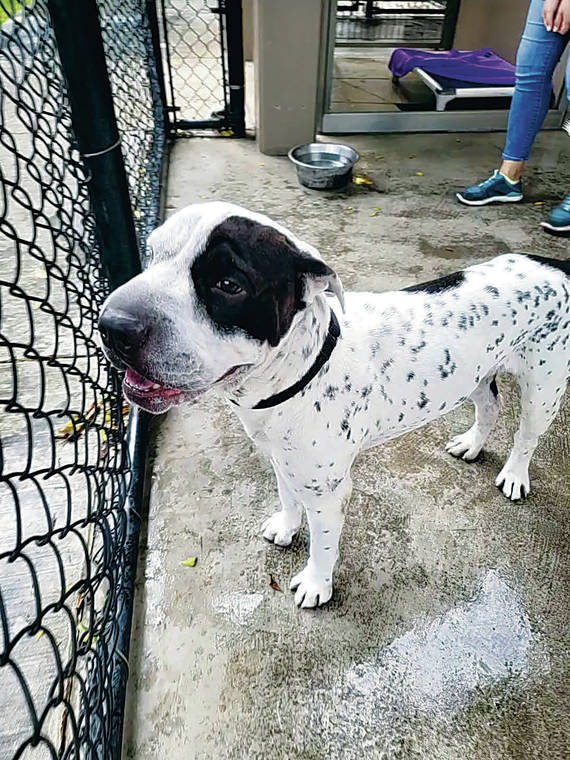
COURTESY HAWAIIAN HUMANE SOCIETY
Boujie, a Sharpei mix, is available for adoption at the Hawaiian Humane Society.
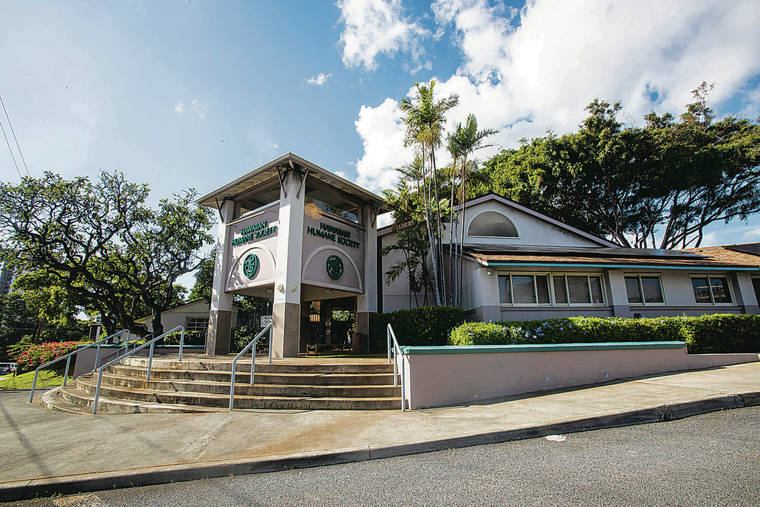
STAR-ADVERTISER / JANUARY 2020
Daniel Roselle, Hawaiian Humane Society spokesman, said the organization for the past four months has noticed an increase in the number of pets surrendered by owners. “The increase is a trend and not currently an alarming spike,” he said.
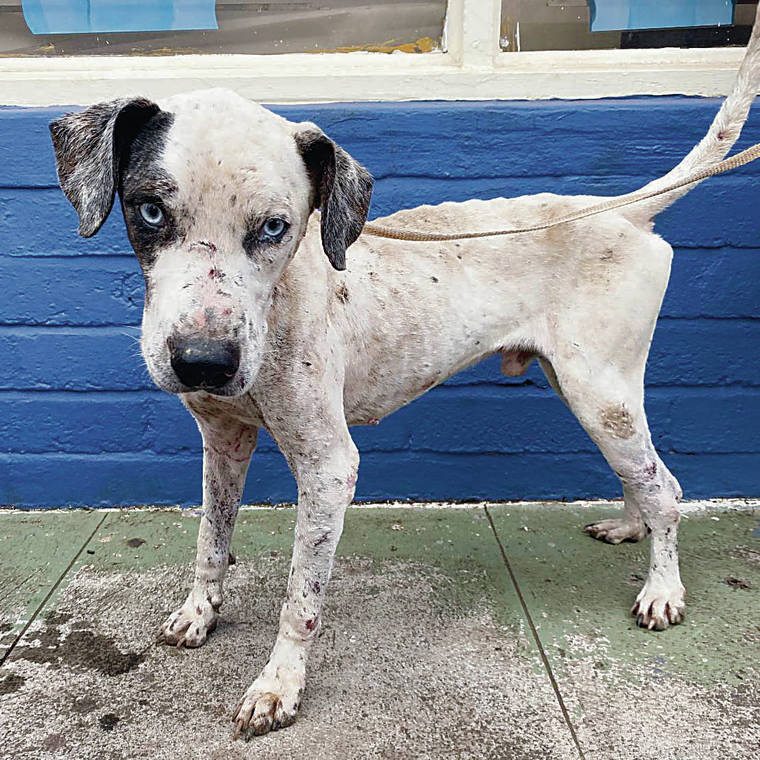
PHOTO COURTESY OAHU SPCA
The Oahu SPCA rescued Hugh, who appeared to have been abandoned, running around the streets near Oahu’s North Shore. Hugh has since been taken in and is receiving treatment. He will likely be up for adoption this holiday season. Many other animals are available for adoption as well.
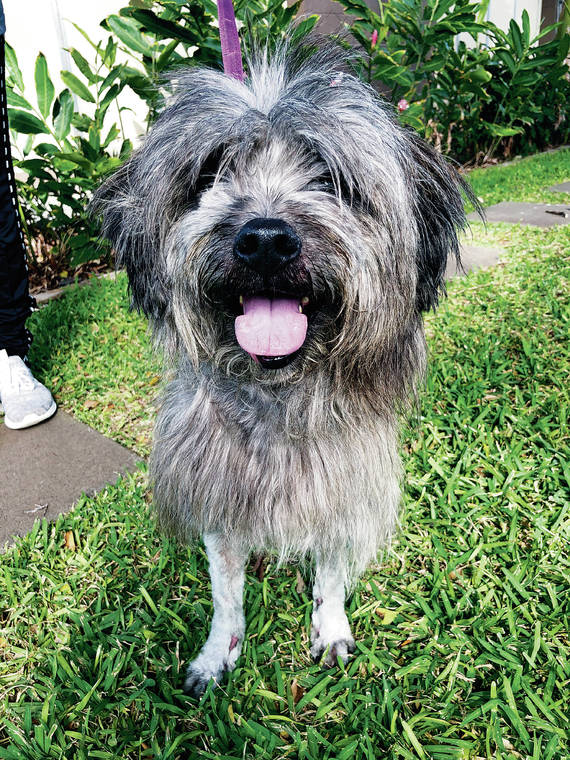
COURTESY HAWAIIAN HUMANE SOCIETY
Miss Daphne, available for adoption at the Hawaiian Humane Society.
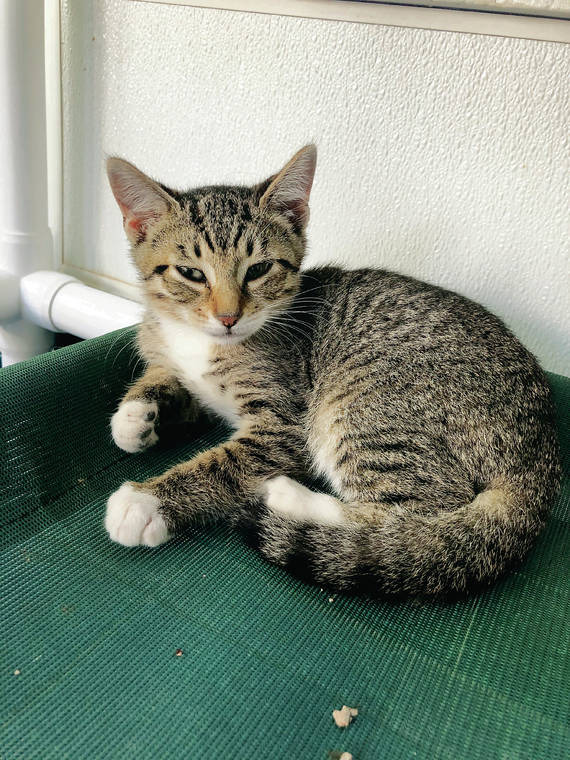
COURTESY HAWAIIAN HUMANE SOCIETY
Aragorn the cat is available for adoption at the Hawaiian Humane Society.






Although there has been an increase in demand for the adoption of pets Opens in a new tab during the COVID-19 pandemic Opens in a new tab, there has also been an uptick in the number of animals being surrendered to shelters, according to several Hawaii nonprofits and shelters.
The Oahu Society for the Prevention of Cruelty to Animals Opens in a new tab in Wahiawa said it has experienced a decrease in monetary donations but an increase in the number of animals in need, particularly since the onset of the COVID-19 pandemic Opens in a new tab in March.
When the pandemic hit, Oahu SPCA President Stephanie Ryan said donations dropped to about one-third of the usual levels.
“What we’re finding right now is people are having to move to the mainland (and leaving their pets behind),” she said. “I’m not sure if it’s due to extended family needing help or their inability to pay for their homes and apartments, but this is a huge trend right now, people moving to the mainland. As you’re aware, Hawaii is very expensive.”
The Hawaiian Humane Society Opens in a new tab has noticed an increase in the number of pets surrendered by owners to its admissions center for the past four months, according to spokesman Daniel Roselle.
Most often, people surrender their pets because they are moving to a place that does not allow pets, are moving off island or, occasionally, because they have too many animals.
Don't miss out on what's happening!
Stay in touch with breaking news, as it happens, conveniently in your email inbox. It's FREE!
“That said, the increase is a trend and not currently an alarming spike,” wrote Roselle in an email. “We remain well within our capacity to care for the pets we are receiving.”
The Humane Society has been expanding its capacity by training a larger pool of fostering volunteers, with foster training now available online, and forming more partnerships with places like the Hawaii Cat Cafe and Petco to coordinate off-site adoptions.
Partnerships with other animal welfare organizations like Paws of Hawaii Opens in a new tab, which places animals for adoption with foster families, have also helped. Recently, a female pit bull that gave birth to six puppies at the shelter was transferred to a home to nurse her pups, thanks to that partnership.
Demand at the Humane Society’s Pet Food Bank Opens in a new tab is also growing, noted Roselle.
To assist struggling families, the Humane Society offers free pet food three times a week via drive-thru pickup. The free pet food comes directly from public donations.
The Humane Society has distributed about 200% more pet food from March to October this year compared with the same period last year. The admissions staff also offers one month of pet food to families thinking of surrendering their pet.
A second Pet Food Bank location in West Oahu is expected to be open by the end of the year.
At the Maui Humane Society Opens in a new tab, volunteers recently found six puppies left on its campus in a plastic storage container, with its lid sealed with duct tape.
The puppies were left in the hot sun for several hours before a volunteer discovered them — and tragically, two died. The remaining four were brought inside for emergency medical attention, are now doing well and have already been adopted.
“It’s such a sad story and it was so avoidable,” said MHS spokeswoman Jenny Miller. “We are seeing a lot more cats being dumped and abandoned in the community in addition to an increase in stray animals.”
Miller said the main reason people surrender their pets Opens in a new tabis they are moving and their new place does not accept pets. Pets can be turned in to the shelter for free, she said, emphasizing that MHS does not euthanize animals for space.
While some nonprofits and shelters charge a fee of $35 to $150 for surrendering pets, Maui Humane does not, but accepts donations. The Maui Humane Society will launch an anti-dumping campaign soon.
Oahu SPCA recently rescued Hugh, a young, blue-eyed dog who was running the streets on Oahu’s North Shore. When picked up, he was emaciated, scraped up and chewed up by fleas and ticks.
Hugh seemed to be hanging around waiting for his owners to return, said Ryan, the Oahu SPCA president, and would probably not have survived another week if he had not been rescued. He has since been treated by veterinarians, shows a sweet disposition and will likely be up for adoption this holiday season.
“As we come to the year’s end, we should stress to people the importance of donations,” she said, adding that Oahu SPCA is a private nonprofit with no government funding. “We rely completely on private and corporate donations.”




